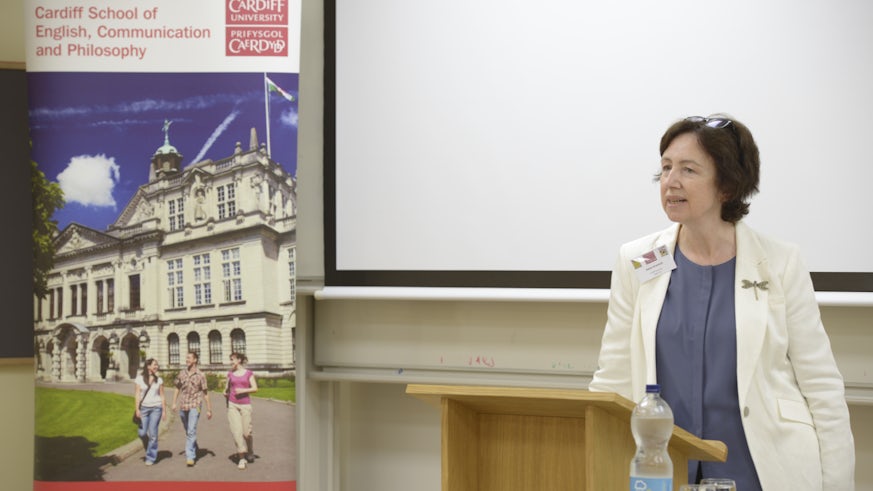‘My People’: controversial text turns 100
9 Rhagfyr 2015

Leading English Literature academic Katie Gramich plays her part in the centenary of the major work of the writer once called the most hated man in Wales.
A century ago, Caradoc Evans’ My People: Stories of the Peasantry of West Wales shook Wales to its core, demonising rural Welsh-speaking Wales.
Professor Gramich explains: “The book was a volume of short stories. Evans, whose first language was Welsh, had managed to ‘escape’ from the poverty of his background to reinvent himself as a Fleet Street journalist and, now, for the first time, an experimental fiction writer.
“The stories of My People caused a furore because they presented rural Wales not as an idyllic ‘land of the white gloves’ but as a dystopian hell on earth where the dirt-poor peasants were tyrannized over by unscrupulous and hypocritical chapel ministers. Evans drew on his intimate knowledge of Welsh and of the Bible to create an unforgettable idiolect for his characters, which many Welsh people of the time and for years afterwards, saw as an insult to their language and culture. To cap it all, Evans published the book in English and in London, so that the old enemy could laugh at the satire of the Welsh by one of their own!”
David ‘Caradoc’ Evans was born in 1878 in the village of Llanfihangel-ar-Arth, Carmarthenshire and raised in Rhydlewis, Ceredigion. Leaving school aged 14, he moved first to Barry, Cardiff and then London. After attending evening classes to improve his English, he turned his hand to journalism and landed a job as a reporter on Fleet Street. In 1915, he published his first work, ‘My People’.
In 1931, Dylan Thomas visited Aberystwyth to pay homage to the author. Subsequently, Thomas and his inter-war ‘golden generation’ of Anglo-Welsh writers were to be dubbed ‘sons of Caradoc.’
Professor Gramich continues: ‘It’s time we looked again at this amazing book in order to see it for what it is: a daring, inventive, modernist experiment which deserves to stand alongside James Joyce’s Dubliners as a work which helped to drag Welsh writing not into the gutter but into the modern world.”
In this year marking the centenary of his polarising collection of short stories, Professor Gramich has contributed to television and radio programmes on the figure that inspired a golden generation of Anglo-Welsh writers in the twentieth century.
This month she gave a talk on Caradoc to the Honourable Society of the Cymmrodorion and appeared in a programme on the writer on BBC Radio Cymru with Dei Thomas. Earlier this year she delivered the opening paper ‘Fouling the Nest? The Conception and Reception of Dubliners and My People’ at a special symposium marking the centenary at Bangor University and appeared on S4C in Caradoc Evans: Ffrae ‘My People’.
Originally from Ceredigion and author of a wide range of books on modern English, Irish and Welsh literature, Professor Gramich teaches at both undergraduate and postgraduate level at Cardiff.